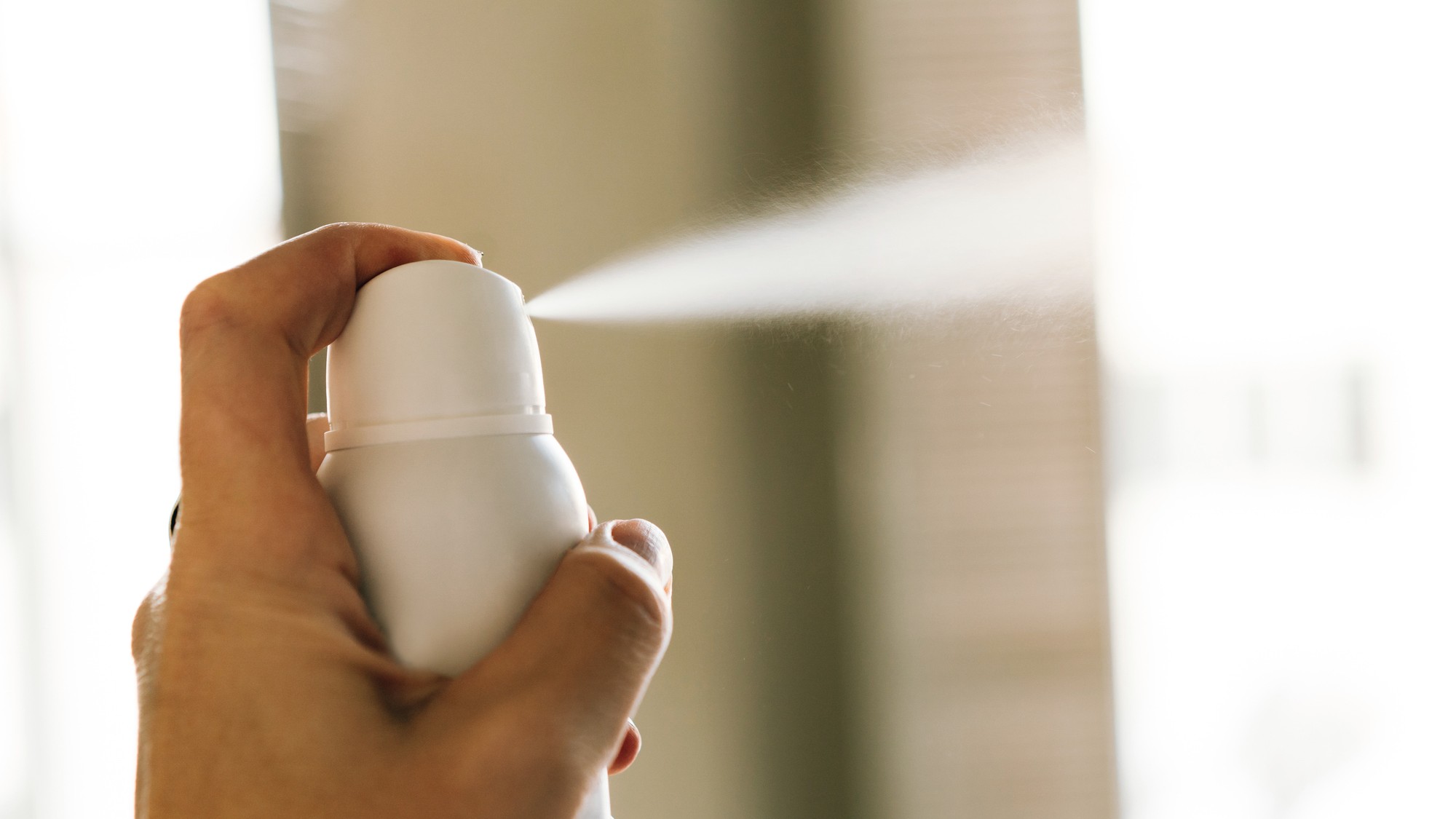Why put deodorant only under your arms when you can put it everywhere?
The anti-odor brigade grows stronger. And more all-encompassing.


A free daily email with the biggest news stories of the day – and the best features from TheWeek.com
You are now subscribed
Your newsletter sign-up was successful
If you have been on the internet the past few months, chances are you have seen an advertisement for whole-body deodorant. Companies from Lume to Native to Old Spice to Secret have been formulating and advertising the product seemingly out of nowhere. While experts largely agree that such products are not necessary, cosmetic and beauty companies are capitalizing on people's deep-rooted fear of smelling bad.
Why is it so popular?
Recently, whole-body deodorants have gained in popularity, with several brands introducing the product. However, that may be a result of advertising more than customer insistence. "It's not clear if these products are suddenly proliferating because of spontaneous public demand — but targeted marketing that's convincing people they smell is a driving factor," said Scientific American. The conversation surrounding body odor has long since moved past strictly the underarms, with companies touting the products' abilities to tackle smell in the groin, feet and even the legs. "It is either, at best, an absurd, comical money grab — and at worst, a concerning phenomenon for your health," Sarah Everts, author of The Joy of Sweat, said to Vox. "Sweating is a human superpower, she says; few other species can use sweat to avoid overheating."
The U.S. has a history of covering and preventing body odor. "Once body soap became widely available in the late 19th century, advertisers latched on, exploiting people's anxieties about being unclean or smelly," said Forbes. Most deodorant products, including whole-body deodorant, were originally marketed to women but are now also marketed to men. "There is a long history of products and procedures that have led to increased shame, embarrassment and insecurity of women regarding the way their genitals look and smell," says Dr. Hilda Hutcherson, a professor emerita of obstetrics and gynecology at Columbia University Irving Medical Center, said to Allure. "They increase insecurities and shame that women have about their natural scents. The vagina is a self-cleaning organ and does not need douching or deodorizing."
The Week
Escape your echo chamber. Get the facts behind the news, plus analysis from multiple perspectives.

Sign up for The Week's Free Newsletters
From our morning news briefing to a weekly Good News Newsletter, get the best of The Week delivered directly to your inbox.
From our morning news briefing to a weekly Good News Newsletter, get the best of The Week delivered directly to your inbox.
In reality, "we have agreed that the natural smell of what we call 'body odor' is kind of unpalatable in our American culture — and in many Western cultures — but there are many cultures where they're very comfortable walking around with that sweat," Dr. Shieva Ghofrany, a board-certified obstetrician-gynecologist and cofounder of the women's healthcare platform Tribe Called V, said to Allure. "While some may view whole-body deodorants as unnecessary, we at Dove know there is demand for this product. Unilever research found that 15% of Americans were looking for a full-body solution," Pranav Chandan, U.S. head of deodorants at Unilever, said to CBS News.
Do you really need a full-body attack?
In most cases, whole-body deodorant is not necessary. "Just bathing should take care of whatever quote-unquote 'problem' you think you have. And if you need to be throwing more at your microbiome than a simple daily shower … it's probably your perceptions of your smell that are the problem not actually the smell." Andrew Best, a biological anthropologist who studies sweat at the Massachusetts College of Liberal Arts, said to Vox. Also, not all sweat is created equal. Sweat itself does not have a smell, and the odor instead comes from it mixing with bacteria on the skin. Deodorants are solely fragrances that cover up odor, but do nothing to stop the source. Antiperspirants instead temporarily block sweat altogether, which prevents odor, but should not be used all over the body because sweat plays an important role in keeping us cool.
"Whole-body deodorants use ingredients that are generally considered safe, but people with sensitive skin should be cautious when it comes to fragrances; aromatic compounds in scents could trigger an allergic reaction called contact dermatitis, which causes an itchy rash," said Scientific American. Putting these products in sensitive areas like the groin and genital region could disrupt the microbiome, especially in women, which could lead to infections and other issues. In general, "shower regularly, wash thoroughly, especially in areas where a person tends to sweat, use antibacterial soap, dry off well and wear freshly cleaned clothes. Applying underarm deodorant or antiperspirant is part of this ritual," Forbes said. "As a supplement whole-body deodorant can be used, albeit with some caution advised."
A free daily email with the biggest news stories of the day – and the best features from TheWeek.com
Devika Rao has worked as a staff writer at The Week since 2022, covering science, the environment, climate and business. She previously worked as a policy associate for a nonprofit organization advocating for environmental action from a business perspective.
-
 At least 8 dead in California’s deadliest avalanche
At least 8 dead in California’s deadliest avalancheSpeed Read The avalanche near Lake Tahoe was the deadliest in modern California history and the worst in the US since 1981
-
 Political cartoons for February 19
Political cartoons for February 19Cartoons Thursday’s political cartoons include a suspicious package, a piece of the cake, and more
-
 The Gallivant: style and charm steps from Camber Sands
The Gallivant: style and charm steps from Camber SandsThe Week Recommends Nestled behind the dunes, this luxury hotel is a great place to hunker down and get cosy
-
 ‘Zero trimester’ influencers believe a healthy pregnancy is a choice
‘Zero trimester’ influencers believe a healthy pregnancy is a choiceThe Explainer Is prepping during the preconception period the answer for hopeful couples?
-
 Stopping GLP-1s raises complicated questions for pregnancy
Stopping GLP-1s raises complicated questions for pregnancyThe Explainer Stopping the medication could be risky during pregnancy, but there is more to the story to be uncovered
-
 RFK Jr. sets his sights on linking antidepressants to mass violence
RFK Jr. sets his sights on linking antidepressants to mass violenceThe Explainer The health secretary’s crusade to Make America Healthy Again has vital mental health medications on the agenda
-
 The controversial Free Birth Society
The controversial Free Birth SocietyThe Explainer Influencers are encouraging pregnant women to give birth without midwife care – at potentially tragic cost
-
 Nitazene is quietly increasing opioid deaths
Nitazene is quietly increasing opioid deathsThe explainer The drug is usually consumed accidentally
-
 The plant-based portfolio diet invests in your heart’s health
The plant-based portfolio diet invests in your heart’s healthThe Explainer Its guidelines are flexible and vegan-friendly
-
 Tips for surviving loneliness during the holiday season — with or without people
Tips for surviving loneliness during the holiday season — with or without peoplethe week recommends Solitude is different from loneliness
-
 More women are using more testosterone despite limited research
More women are using more testosterone despite limited researchThe explainer There is no FDA-approved testosterone product for women
